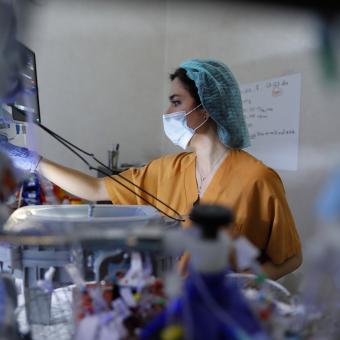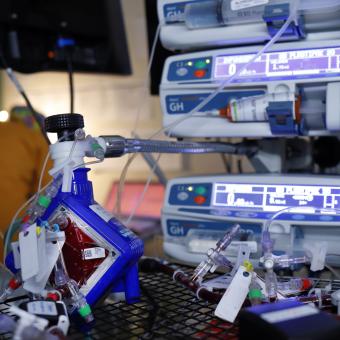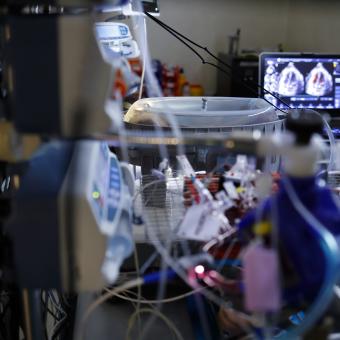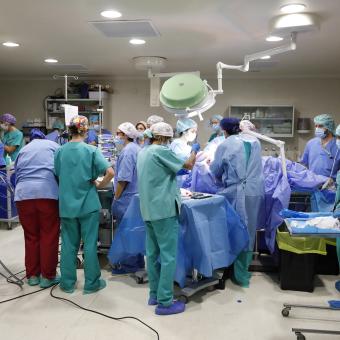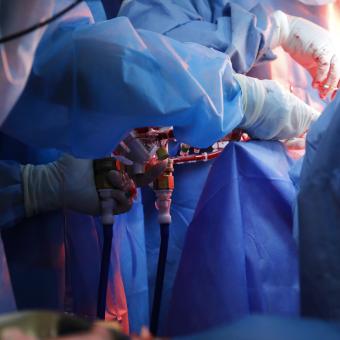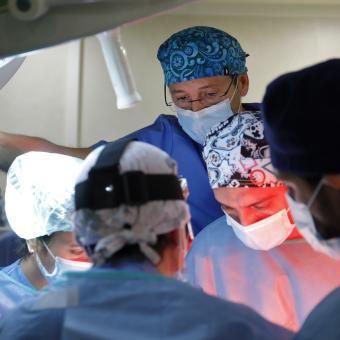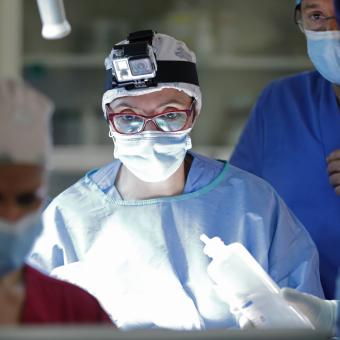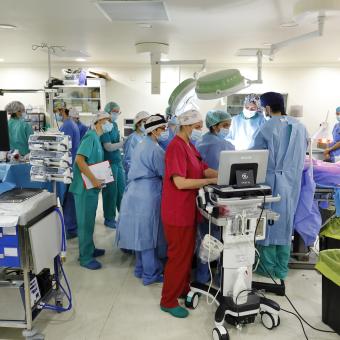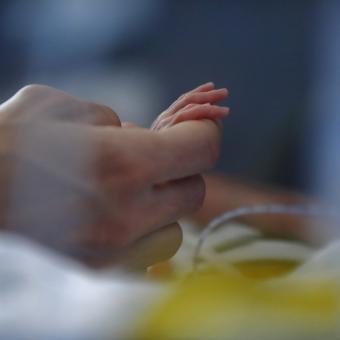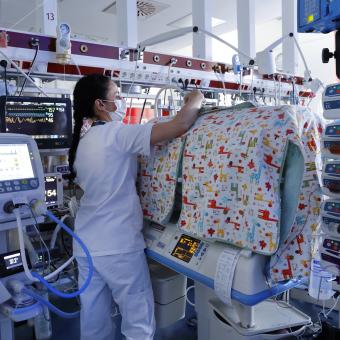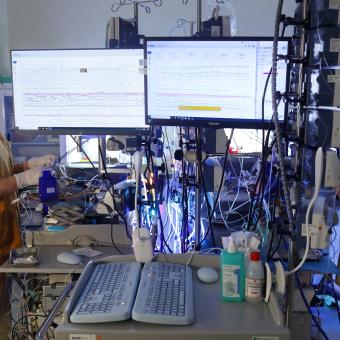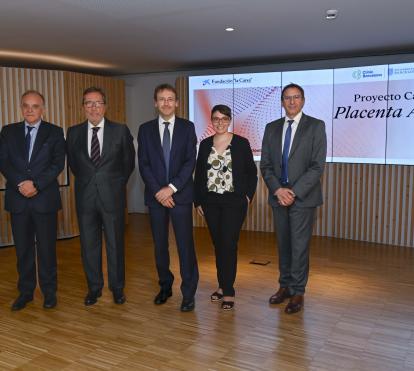
The CaixaResearch Artificial Placenta project achieves foetal survival of 12 days in good health
19.06.23
2 minutes readOver the first two and a half years of the project, the CaixaResearch Artificial Placenta scientific team developed a prototype of a functional artificial placenta with 12-day survival with good foetal health in an animal model, demonstrating that maintaining a very extreme premature baby in an artificial placenta system is viable.
”la Caixa” Foundation is now injecting a further 4.3 million euros into the project to help fund a second experimental validation phase and a final clinical phase. The Foundation supported the first phase with 3.35 million euros, enabling improvements to be made and helping to position the project, the only one of its type in Europe, as a world leader.
The aim of the artificial placenta system designed under the project is to reproduce and prolong the physiological conditions of the maternal womb to enable the correct development of the organs of neonates born at six months or less, increasing their chances of survival and minimising the sequelae that affect many of these newborns, driving a paradigm shift in the treatment of extremely premature infants.
This disruptive initiative, led by Dr Eduard Gratacós, is being carried out at BCNatal, a clinical and research centre in foetal and neonatal medicine of international standing attached to Hospital Clínic de Barcelona and Hospital Sant Joan de Déu. The project involves a multidisciplinary team with the direct participation of more than 35 researchers and the collaboration of more than 30 other professionals.

